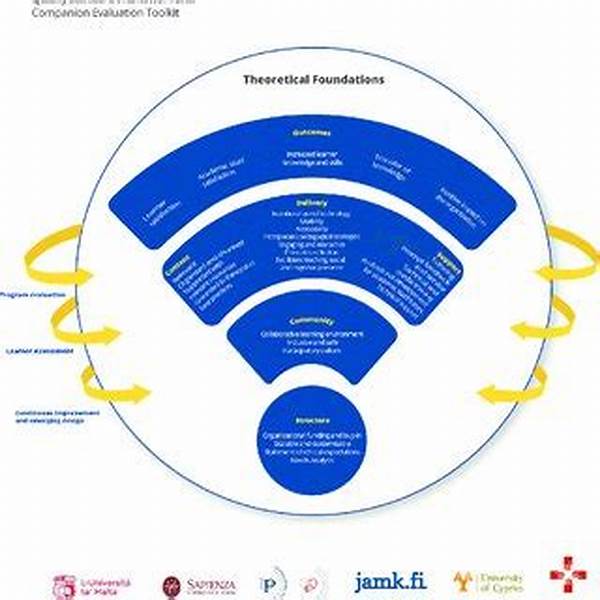In the dynamic world we live in today, understanding our past has never been more crucial. It’s not just about dusty books or ancient artifacts; it’s about unlocking stories that shape our present and future. Enter shared historical studies initiatives—a revolution in how we perceive, access, and share history. Imagine diving into the depths of our past, and doing so with peers who share your yearning for knowledge. These initiatives don’t just make history accessible; they make it alive, interactive, and vibrant. So, why should you care? Because by uniting our efforts, we’re not just passive observers of history but active participants reshaping its narrative for future generations.
Read Now : Animated Movies From Real Incidents
The Power of Collective Memory
Have you ever wondered how history could be reimagined if we all contributed to it collectively? Shared historical studies initiatives do precisely that. They break down the silos of history kept behind the closed walls of academia, inviting everyone from every walk of life to contribute. When we embrace a shared approach, we’re tapping into a vast reservoir of knowledge, experiences, and perspectives. Imagine countless untold stories, each adding a nuance to our historical understanding. This collaborative spirit not only enriches our knowledge but makes it far more inclusive and representative of diverse voices. So, why let history remain a rigid timeline when it could be a vibrant, ever-evolving tapestry shaped by all of us?
Shared historical studies initiatives bring history right to your fingertips, inviting you to partake in an exciting journey through time. Just think about the potential of learning history through diverse eyes—not just from a textbook perspective but from those who lived it, and those who continue to study it from various angles. By supporting such initiatives, we become custodians of our collective memory, ensuring that the richness of our past is available to future generations in ways that textbooks alone can’t convey. History thus becomes a living dialogue, continually enriched by diverse inputs and interpretations.
Why Shared Historical Studies Initiatives Matter
1. Bridging Gaps: These initiatives connect individuals globally, fostering an environment of shared learning and understanding.
2. Inclusive Narratives: They ensure that histories of marginalized communities are highlighted and integrated into the broader historical context.
3. Dynamic Learning: Engaging with history in interactive and collaborative ways offers a more vibrant experience than traditional methods.
4. Empowering Communities: By participating in shared historical studies initiatives, communities can preserve and promote their unique histories.
5. Expanding Horizons: They encourage us to think critically and widen our perspectives on historical events and their impacts.
Transforming How We Perceive History
Shared historical studies initiatives have the incredible power to transform our understanding of the past. By opening up history to the masses, these initiatives democratize our understanding, allowing it to be shaped by a diverse and inclusive collective. This shift from traditional academic confines to an open-source model empowers everyone to have a say in how our history is told and remembered.
Imagine the endless opportunities for engagement where historical studies become an exhilarating pursuit rather than a mundane obligation. Instead of passive learning, we’re talking about an interactive experience where digital resources, collaborative platforms, and cross-cultural exchanges become the norm. Shared historical studies initiatives invite us to immerse ourselves in a world where history is not just learned but lived. This movement is reshaping how we understand the past and inspiring us to envision the future in new ways.
The Impact of Collective Historical Engagement
Understanding the profound implications of shared historical studies initiatives can usher us into a new era of historical appreciation.
1. Redefine History: Break free from traditional narratives and pioneer new historical interpretations.
2. Cultural Enlightenment: Gain insights into varied cultural backgrounds and enhance cross-cultural empathy.
3. Educational Access: Democratize access to historical resources, ensuring equitable learning opportunities.
4. Global Communities: Unite people worldwide under a common interest in exploring and preserving history.
Read Now : Climate Change Awareness Through Animation
5. Historical Problem-Solving: Utilize past lessons to tackle contemporary challenges effectively.
6. Youth Engagement: Ignite younger generations’ interest in history through innovative technologies and interactive approaches.
7. Collaborative Research: Foster an environment where academic and public historians work together seamlessly.
8. Preservation Efforts: Boost initiatives aimed at protecting historical sites and artifacts.
9. Open Dialogue: Encourage open discussions that challenge established historical perspectives, fostering critical thinking.
10. Shared Heritage: Cultivate a sense of shared ownership over our collective past, promoting unity and understanding.
Engaging with History in Exciting New Ways
The beauty of shared historical studies initiatives is that they invite you to view history through an exhilarating new lens. Imagine history that feels pertinent and alive, a far cry from the monotony many traditionally associate with the subject. It’s like upgrading from a grayscale world to one bursting with color; each hue represents a unique perspective or previously unheard voice contributing to the historical narrative.
Engaging with these initiatives means fully diving into the past’s swirling waters, only to come out with a richer, more nuanced understanding of where we’ve been and where we’re headed. Shared historical studies initiatives aren’t just rethinking how we do history; they’re recharging it, transforming our engagement from passive consumption into vibrant participation.
The Unified Experience of Historical Narratives
These initiatives are not just about capturing the basics of who, what, when, and where. They delve deeper, exploring the ‘why’ and ‘how,’ enriching our comprehension of the human saga. Picture yourself participating in a global dialogue where shared stories reveal hidden connections between disparate cultures and epochs. The stories within shared historical studies initiatives weave a complex, interconnected web of humanity’s journey—a journey that you can partake in and contribute to.
Such initiatives herald an era where history doesn’t segregate but unifies, demonstrating that every narrative, no matter how small, contributes to the grand tapestry of our shared heritage. They open up endless possibilities for re-examining the past, offering insightful lessons that guide our collective future.
Bridging Divides Through Shared Initiatives
To wrap it up, shared historical studies initiatives are pivotal in bridging divides—be it geographical, cultural, or social—catalyzing a change in how we relate to history. These programs not only educate but also inspire individuals worldwide to seek out shared stories and learn from them. We’ve entered an exciting time where technology enables us to access information like never before, allowing us to harness our collective curiosity and wisdom.
Shared historical studies initiatives thus become more than research projects—they transform into a global movement, with each of us playing a critical role as ambassadors of our unique cultures and experiences. By investing in these collaborative efforts, we ensure that history isn’t just learned but actively lived and continuously shaped, nurturing a world where knowledge is shared and history becomes a vibrant, ongoing conversation.



